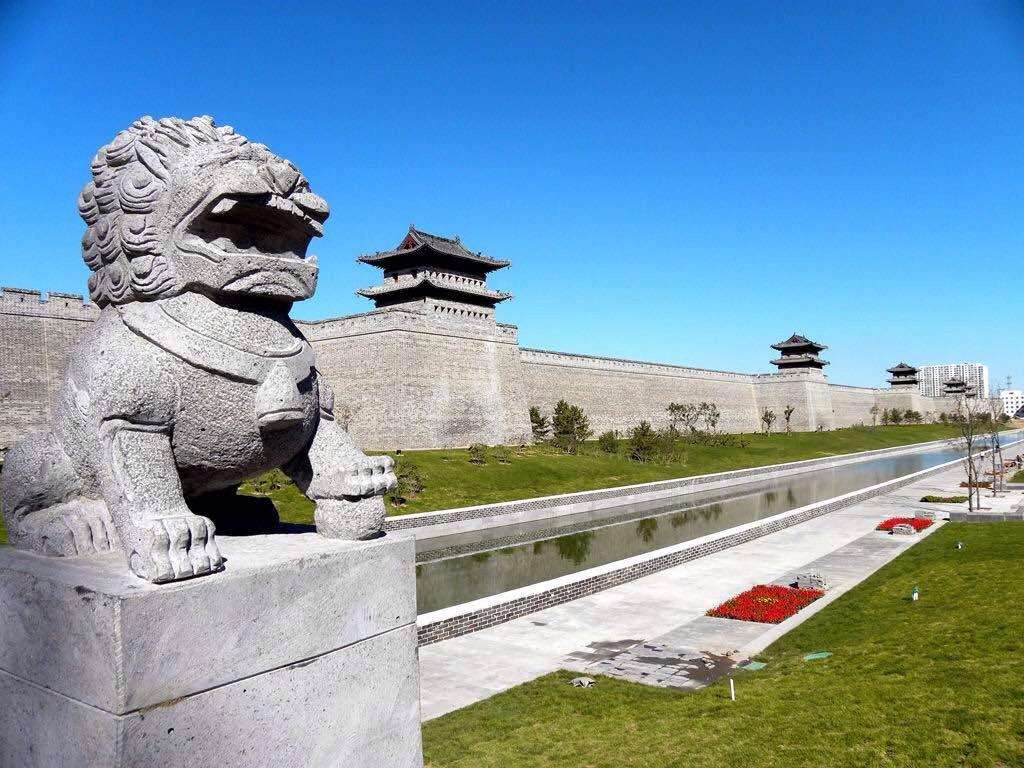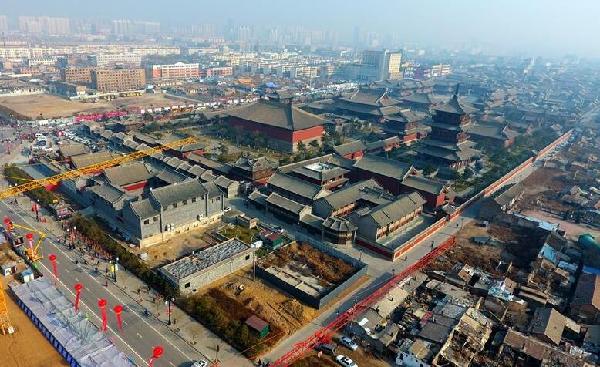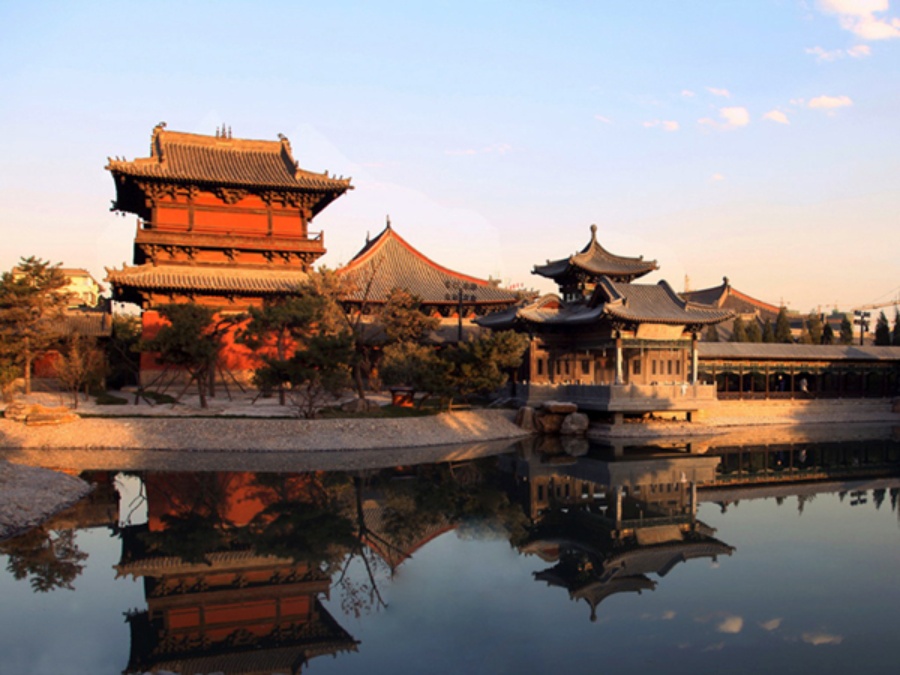24 Hours Hotline: +86 137-3541-1378
Email:[email protected]
24 Hours Hotline: +86 137-3541-1378
Email:[email protected]

Overview
Datong was called Ping Cheng in ancient times, when it was under the jurisdiction of Yanmen Prefecture. Ping Cheng nestles between the outer and inner Great Walls and Fort Wuzhou (presently the old city of Zuoyun) was of strategic importance as the northern gateway to Central China since it guarded communication access between the Han Chinese and ethnic minority groups such as the Huns and Xianbei. PingCheng was also an international metropolis at the east end of the Silk Road and the base for Tuobao tribe of Xianbei nationality after their capital was moved here in 398 A.D.
It took the emperors Daowu, Mingyuan and Taiwu of Northern Wei Dynasty 66 years to control and unify North China. Ping Cheng served as the Capital city of Northern Wei Dynasty and was the political, economic and cultural center for 96 years beginning in 398 A.D. when it became the Capital by order of emperor Tuoba Gui. In 494 A.D. the Capital was moved to Luoyang by emperor Xiaowen. Great progress was made in political, economic, cultural and religious affairs when Ping Cheng served as the Capital city. Yungang Grottoes was part of that progress. It was a huge project initiated and suported by the Northern Wei Dynasty to disseminate Buddhism.
The six decades from 460 A.D. to 524 A.D.witnessed the completion of statues at major caves in Yungang Grottes. In 460, at the advice of the eminent monk Tan Yao, emperor Wencheng gave instructions to hollow five caves out of Mount Wuzhou on the west of the capital and build Buddhist statues in each cave. The five caves by Tanyao are Numbers 16 to 20.

History and Development
The Northern Wei Dynasty
The construction project continued until 524. A.D. Ping Cheng was renamed Heng An under the jurisdication of Yunzhong Prefecture during the Dynasties Eastern Wei, Northern Qi, Sui and early Tang.
The Tang Dynasty
According to the Inscription on the Reconstruction of the Great grotto temple at Mount Wuzhou in Western Capital of Jin Dynasty by Cao Yan in 1147, the temple was reconstructed by the Governor in the fifteenth year of Zhenguan in 641. What was written in the old Qingliang biography says that a Buddhist monk by the name of Yan, often repaired the age-old statues at Xiaowen Grottoes and finished the work in 673. There have been no major renovation projects carried out at Yungang Grottoes since the early Tang Dynasty due to the economic depression which hit Ping Cheng then.
The Liao and Jin Dynasty
Under the reign of Xingzong and Daozong of Liao Dynasty, a large scale renovation lasting for ten years was carried out at the grotto temple of Mount Wuzhou. Ten wooden temples were installed against cavesand repairs were also made on one thousand buddhist statues. From the 3rdyear to the 6th year of Huangtong of Jin Dynasty(1143A.D.-1146A.D.), the Lingyan Temple (the temple outside the No. 3 Cave) was also refurbished by abbot Binghui.
The Yuan Dynasty
These temples remained till Yuan Dynasty.

The Ming Dynasty
No attention was given to the Yungang of Datong during the Ming Dynasty. The name of Yungang was given during the Jia Jing period of Ming Dynasty. When the peasant uprising led by Li Zicheng stopped over at Datong in 1644, Zhang Tianlin was left behind to govern here. The Yungang Temple was burned down again after the Qing army occupied Datong.
The Qing Dynasty
The Yungang Temples were repaired again at the 8thyear of Shunzhi period during Qing Dynasty and it was during this period that wooden chambers of the No.5 and No. 6 caves and the temples were repaired. When emperor Kang Xi inspected Yungang Grottoes en route to Beijing in the winter of 1651, he gave the inscription of Zhuang-Yan-Fa-Xiang(magnificent view). Repairs have also been made on Yungang Grottoes in Qianlong period of Qing Dyanasty.
Today
The wooden chambers on the caves No. 5, No.6 and No.7 and the major grottoes have been in a good condition till 1949, when the Peoples' Repulic of China was founded. The special institution for the protection and conservation of the caves was established in 1952 when they were opened to public.
Prev: Datong Facts
Next: Datong Weather
Wechat: Chinaprivatetour
24 Hours Hotline:
+86 137-3541-1378
* Authentic Experiences: Genuine local experiences that immerse you in the true essence of Xi'an and beyond.
* Safety First: Highest safety standards with secure activities and reliable transportation.
* Customizable Tours: Flexible itineraries tailored to your interests and needs.
* Local Expertise: In-depth knowledge of Xi'an and China, offering exclusive insights.
* Professional Guides: Licensed bilingual guides with over 5 years of experience.
* Comfortable Travel: Experienced drivers and well-maintained vehicles for a smooth journey.
* Sustainable Tourism: Commitment to responsible tourism and supporting local communities.
* Customer-Focused: Personalized service and continuous improvement based on your feedback.
* Free Cancellation: Cancel up to 24 hours before travel for flexibility and peace of mind.
* 24/7 Support: Round-the-clock assistance for any questions or help needed.
(Your Privacy is Protected)
1 to 1 tailor-made service from our professional travel advisors for the most sophisticated
Constantly excellent reviews for attraction, hotel and service Competitive price
Local experts provide quality tours Best selected knowledgeable local guides Authentic local restaurants
7*24 hours available to create you a worry-free tour. No Hidden Fees and absolutely no pressure to buy. Secured









Copyright © 2017 www.xianprivatetour.com All rights reserved. 浙ICP备18056007号-6